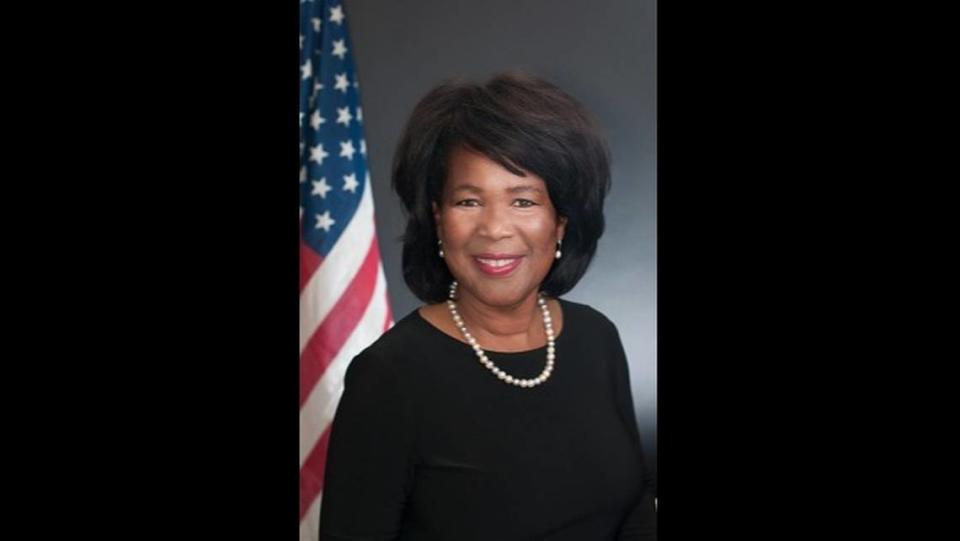State orders NC charter school to repay $162,597 it allegedly spent inappropriately
A North Carolina charter school tied to a high-ranking federal official has been ordered by the state to repay $162,597 it’s accused of inappropriately spending.
The state Department of Public Instruction presented reports in December alleging conflict of interest violations and misspending of state and federal dollars at Children’s Village Academy in Kinston. On Monday, DPI sent the school a letter ordering it to repay $162,597 in “unallowable costs” in the next 10 days.
The letter comes as the state Office of Charter Schools has recommended that both Children’s Village Academy and Ridgeview Charter School in Gastonia lose their charters when they expire in June. The Charter Schools Review Board will vote in March whether to renew the schools.
On Monday, Children’s Village leaders told the Review Board that it’s addressing the concerns, including investigating questioned financial transactions and improving its internal control policies.
“We are confident that these steps will ensure that CVA continues to operate in compliance with all legal requirements and recommendations,” said Jessica Jones, the school’s executive principal. “We hope that the Charter School Review Board takes into consideration these action steps for improvement and renews the CVA’s charter so that it may continue its mission to successfully serve at-risk populations in Kinston and surrounding areas.”
Board member to forgive balance on questioned loan
Many of the questions have revolved around the school’s dealings with Peggy Carr, the vice chair of Children’s Village’s board of directors.
Carr is commissioner of the National Center for Education Statistics, which is part of the U.S. Department of Education. The center oversees the National Assessment of Educational Progress, commonly called NAEP, which is a series of national tests given to assess the state of education.
Carr’s family founded Children’s Village Academy in Lenoir County in 1997. In 2008, Carr gave the school a loan of $188,000 to help it get through a financial crisis.
DPI questioned the documentation of the loan and how Carr has received more than $140,000 in interest payments so far.
“Although the reports do not say so expressly, they implicitly allege that the board should not have taken out the loan, or that it paid too much interest,” Matthew Tilley, Carr’s lawyer, wrote in a letter to the Review Board. “Those allegations, however, are unfounded and would require DPI or the CSRB to second-guess the board’s business judgment.”
Tilley said that the amount repaid in interest was reasonable for a 15-year loan. But Tilley said that both his client and the school agree that the loan could have been “better documented.”
Children’s Village told DPI that Carr is forgiving the outstanding $13,427 balance on the loan. Carr has a second loan of $31,500 that the school still has to pay back.
Carr attended the meeting virtually, telling the Review Board it’s been her mission to help keep the school open.

Furniture costs explained
DPI also questioned the school using federal grant funds to buy items such as dining room tables, dining room chairs and decorative items such as a wall mirror, “colorful cows” and pillows for a house in Kinston owned by Carr. The school uses the property for tutoring students.
Tilley said it’s “completely unfounded” to say the furniture was for Carr’s personal use. Tilley said that the school uses the house all year, even though it only pays rent for the property for two months.
DPI raised other concerns, including:
▪ The school paid the utility bills for the house when the property was being used for other services, including a U-Haul business.
▪ The school’s operations manager submitted a $9,400 invoice for summer program items such as T-shirts and backpacks even though it wasn’t related to his duties. The operations manager is related to Carr.
▪ A custodian/bus driver who is married to the K-5 principal was paid $15,000 in federal grant dollars in July and August. The K-5 principal is also Carr’s sister.
School doesn’t think it can repay money
DPI is demanding the school repay $162,597 in “unallowable costs” to the U.S. Department of Education. The money was spent from a federal grant to operate a community learning center.
“I just don’t foresee being able to pay back $162,000 in the next two weeks, but again we’re just getting this notice today,” Jones told the Review Board.
The school can appeal the order like it has appealed earlier findings issued by DPI. An appeal hearing will be heard Feb. 19, which Review Board members said could affect their renewal decision.
Will the charter be renewed?
The state Office of Charter Schools initially was going to recommend Children’s Village get a three-year renewal — the shortest renewal period granted. The school’s test scores didn’t meet the criteria for a longer renewal.
But after the DPI audits, the Office of Charter Schools is citing “material violations” in the charter and “failure to meet generally accepted standards of fiscal management” for recommending non-renewal.
“The compliance findings have been substantial,” Ashley Baquero, director of the Office of Charter Schools, told the Review Board. “Although they’ve been recently discovered, they indicate a long-term problem.”
But Jones and members of the board of directors made a plea to the Review Board to keep the school open. They say the school is a lifeline for its 151 mostly economically disadvantaged students.
“The school is more than just any school,” Jones told the Review Board. “It is a home away from home for many of our youth. In ways it has been a safe haven for youth trying to escape the ills in the community.”

